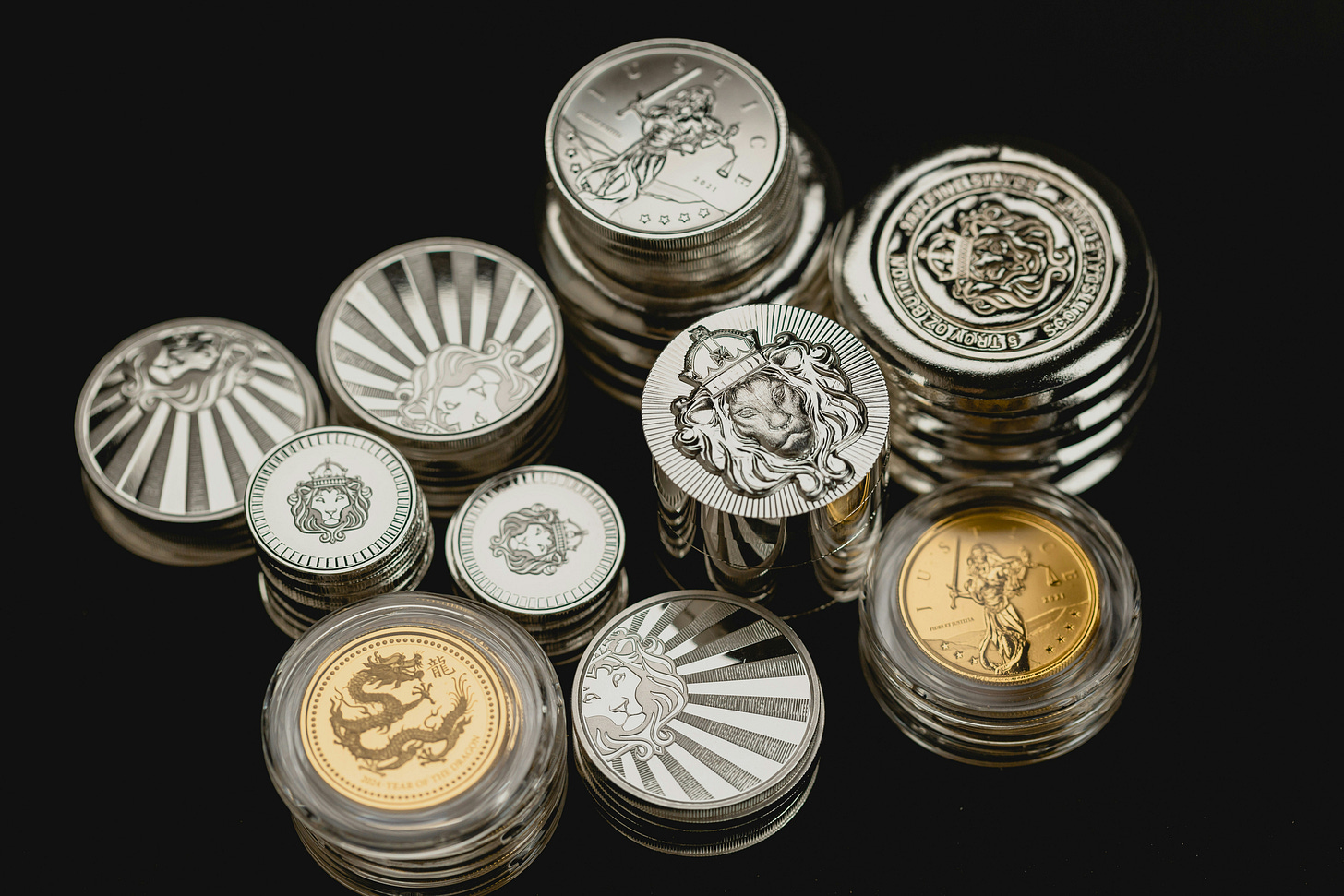Currency in Fantasy: How Money Shapes Magic Worlds
Tracking national debt, or making coins weightless?
Do you remember during the Council of Elrond, how Boromir said “One cannot simply walk into Mordor. It would require over a 2% commitment of our fiscal budget to fund, and that’s not to mention sourcing proper clothing and weapons for Hobbits.”
Oh, he didn’t say that last part?
Why not? In Game of Thrones we have these lines:
I'm telling you the crown is six million in debt.
The Iron Bank will have its due.
Here, currency and money play a far more significant role than they do in Lord of the Rings.
So why is that, how do you figure out what you should do, and what can you do with currency in your worlds?
Why does currency exist in fantasy, why is it different across books?
If you read my thoughts on Drugs in Fantasy, you’ll know my general answer: theme.
We are talking about building worlds for stories, and this is helpful because stories give us a guidepost and target to aim at.
Imagine the men of Gondor discussing during siege whether they should fight, as they might not get paid. On the other hand, Littlefinger paying off the guards to betray Ned Stark feels perfectly natural and in-world.
The three primary reasons to mention currency in your fantasy world are as follows:
Flavor
Grittiness
Plot
Flavor
In identical thematic fashion to having beer and taverns, copper coins for the peasants and gold for the nobles fills your story with richness established by all the stories before it. Especially as we go cashless in modern society, the clink of coins and glint of gold is a fantastic set-piece and mood setter.
Here, you also have options for the precise flavor you’re aiming at. I suggest coins; its prevalence means recognizability, familiarity, and agreement. If you want to be different, you’ll have to work harder to avoid venturing out of the realm of pure flavor.
A little like Chekov’s gun, if you show characters using dramatically different currency, we might expect that to play some role even if you hadn’t wanted it to.

If you still wish not to use coins, but intend your currency to function like coins, then: Ensure the first mention and usage functions exactly like coins (and beware additional descriptions). A few examples of works that have done this:
Earthsea Cycle: It does use coins, but it also uses quite a few other things for barter and so on. This seems quite reasonable, the characters do this for scarcity and because there is no centralization of currency.
The Witcher: Well, these are coins, but with cool names!
Redwall (loved this series growing up): No currency. This works perfectly, it’s a cozy fantasy style book and series, we do not expect currency to matter.
On the other hand, something like The Stormlight Archives presents Spheres, which have enough magic and description early on that it makes us wonder what they might do. Brandon delivers on this promise as the series continues.
Grittiness
If flavor is what, grittiness is how. The more concerned with how the money behaves in the world your story is, the grittier it gets. This is because money is real life. Adults worry about money, most of you reading this probably pay rent.
If you pick up a dozen different Middle-Grade fantasy-esque novels, count the number of them where currency even appears, much less has any role in the story whatsoever.
Percy Jackson gallivants across the whole of the United States, but he almost never worries about money. Conveniently, some god or camp ends up being around. Golden drachmas are used for Iris Messaging, but this doesn’t tie into financial themes in an economic, world-grounding way.
Ranger’s Apprentice outfits Will with a cloak, horse, bow, and saxe knife, but it never discusses the cost of them, or anything else.
Artemis Fowl’s fabulous wealth keeps mundane costs off-screen, even though huge sums of gold still drive the plot. This matters. It’s ransom money, not rent money.
Plot
The final reason to have currency is for plot. I think The Stormlight Archives is one of the best examples of custom fantasy money that there is.
Not normal coins
Out the gate, we are told of these glowing Spheres, which recharge during the great storms. There’s even mentioned intricacy about some not accepting dun (uncharged) Spheres thinking they might be fakes. A reader instantly asks:
What is that light in them?
Why do they charge up?
Can it be used for anything?
Why does it fade?
And many others.
You do not have to create some wholly new currency if you want yours to drive the plot, all you need to do is make sure that you introduce it early on and with interesting description.
For example, the MC bartering for swords and being up charged because “they aren’t glowing” piques our interest. I wonder what makes them glow?
Economic Stress
The noble houses at the warfront are motivated by the money they can make through killing certain creatures. Aside from the magical aspects of the Spheres, there are in-world economic demands on the currency.
We later find out that these Spheres can be also used within the magic system of the world. This makes Spheres an immensely powerful plot device, and further grounds the world.
I won’t spoil the plot, but characters make decisions that have far-reaching effects based entirely on financial factors that are unique to the world of Roshar.
A simple thought framework for implementing currency in fantasy
Keep reading with a 7-day free trial
Subscribe to The Lyrical High‑Fantasy Library to keep reading this post and get 7 days of free access to the full post archives.




